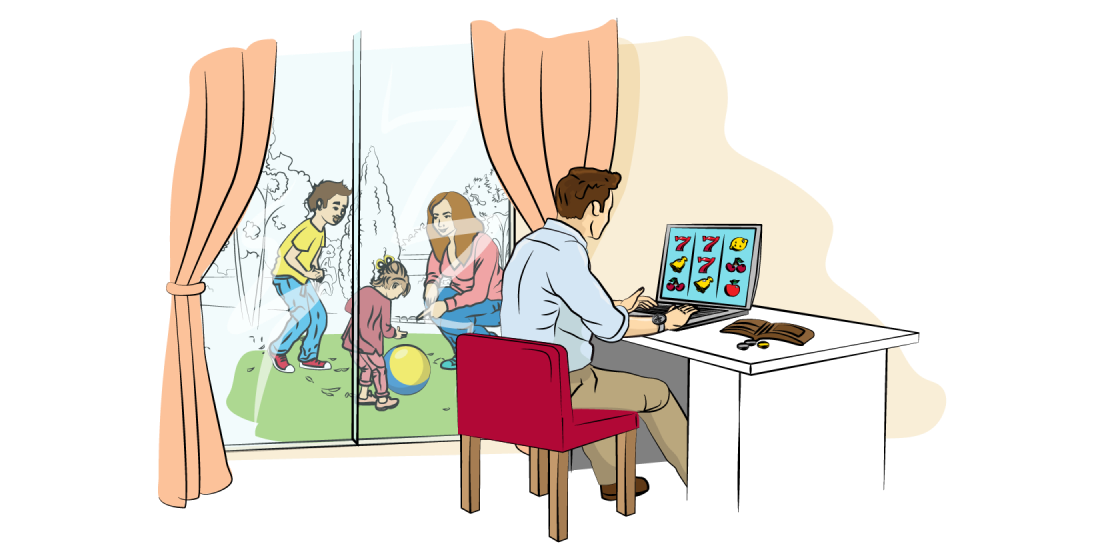Lessons I Learned From Info About How To Help A Gambler
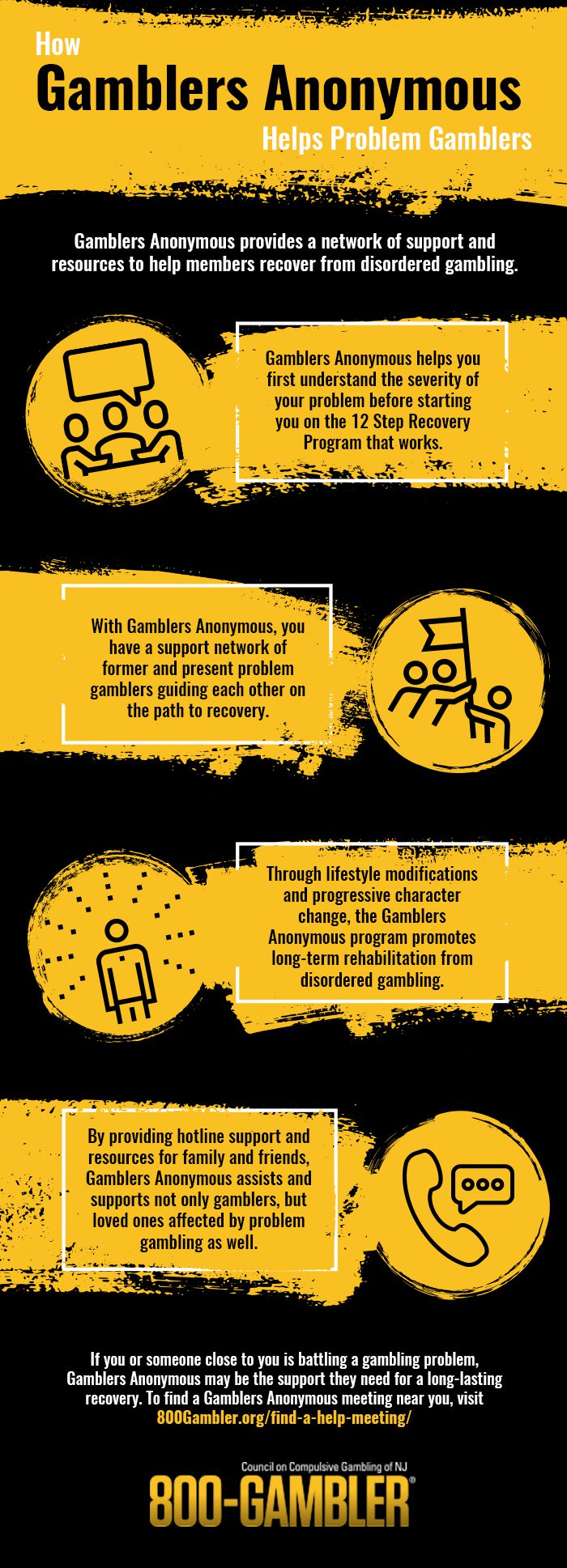
You can let the gambler know that you are no longer willing to lie for them, and then make a commitment to stick to it.
How to help a gambler. In this article, i'm going to explain how to help a gambler. If you want to become a professional gambler, money management skills are essential. They offer voice and text.
Cognitive behavioural therapy usually has the best results. For example, you might ask them if they’re comfortable meeting with a counselor to address gambling. If you feel a strong urge, stop and think about why you feel compelled to gamble.
Keep calm when discussing the behavior of the gambler and how it affects your life together. As we have commented previously,. Try to protect the family.
Become a member of quitgamble.com community. Aim to suggest a solution rather than tell them what to do. Don’t let yourself be manipulated by a sad story and a lot of tears.
Although it may feel difficult to do so, try to be positive with your communication, and avoid saying things that might come across critical or cause confrontation. People with gambling disorders tend to feel ashamed or guilty about their gambling. The first step that we must take if we want to help a gambler to reverse his situation is to understand well what a gambling problem consists of.
Therapy should motivate him to acknowledge and. Stay away from casinos, race tracks, bars, or any other places that may tempt you to gamble. Chat, share your concerns, get advice, and.
Help the gambler take more responsibility for his actions, including the damage he has done in his relationship with his spouse and family. Help for problem gamblers there's evidence that gambling can be successfully treated in the same way as other addictions. Tell the gambler your view of the situation.
A big part of being successful. Gambling is a disorder consisting of the progressive alteration of behavior in which the subject. You need to be able to control your bankroll and know when to walk away.
Gambling becomes less about having fun and more of a bad habit to avoid. No matter how you’re feeling, there’s lots of help available. Call or schedule a meeting for a complimentary assessment with a teen treatment expert.
We’ve put together some useful stories and resources to help you feel in control of your gambling again. Gambling is a mental illness classified as an addictive disorder, in.
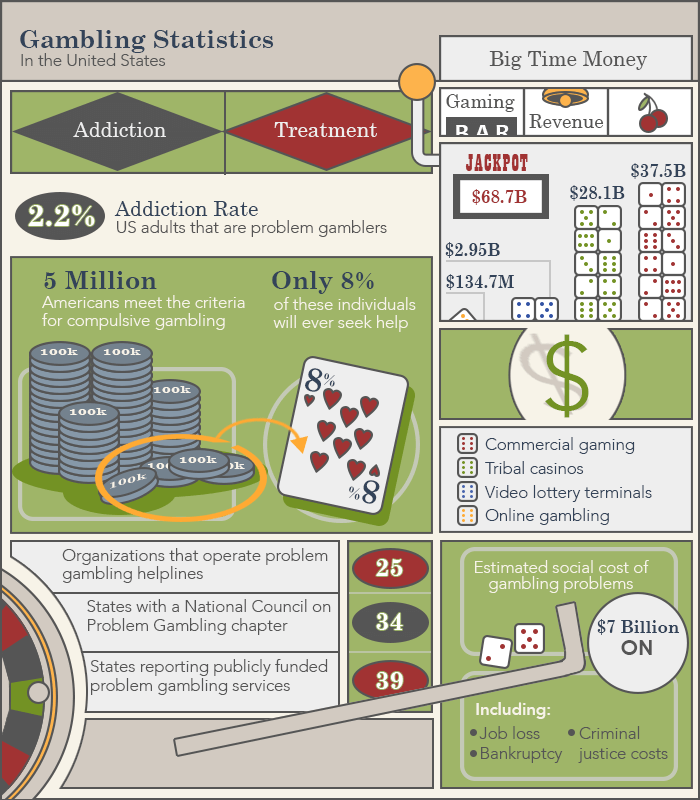


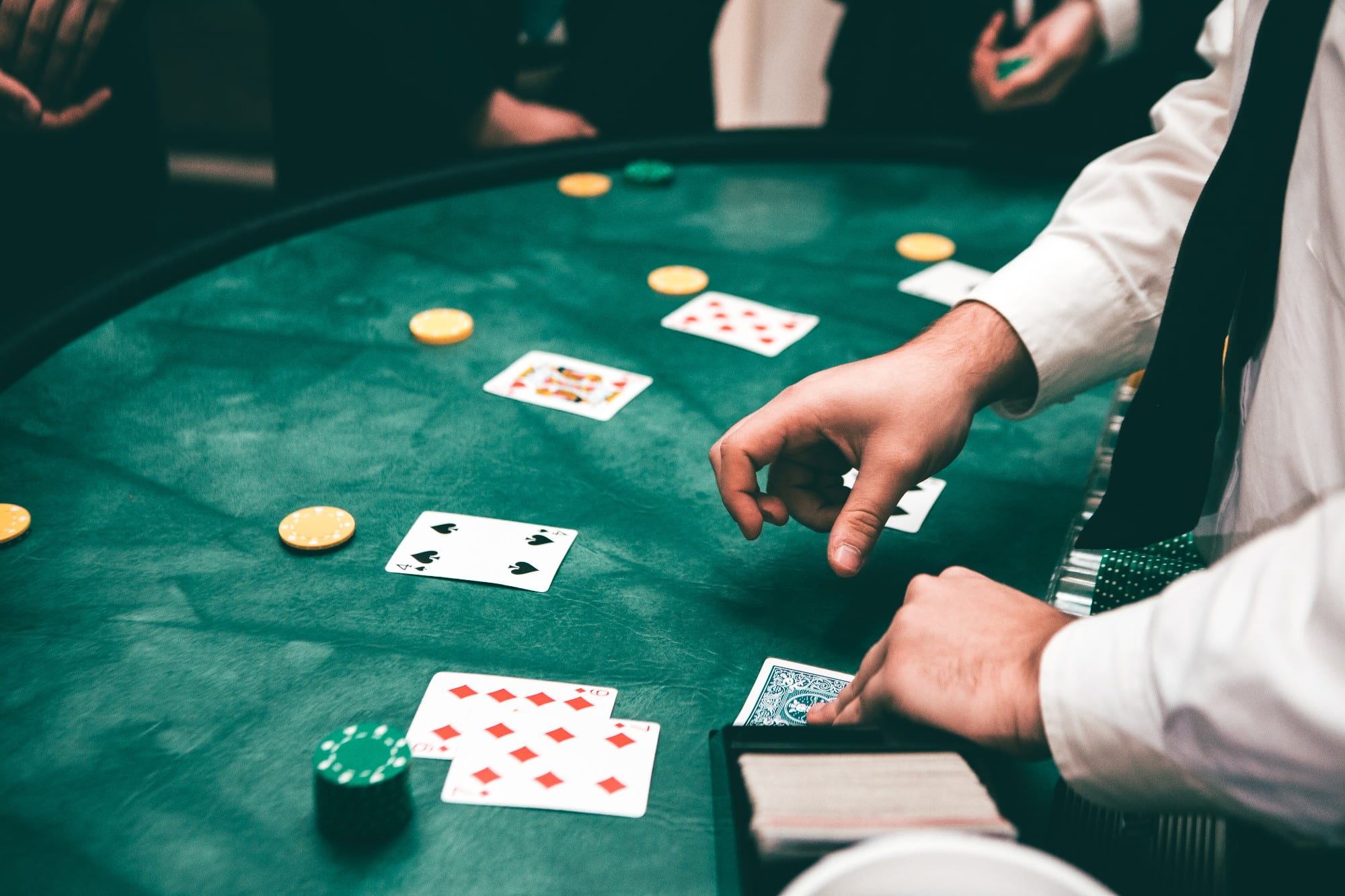


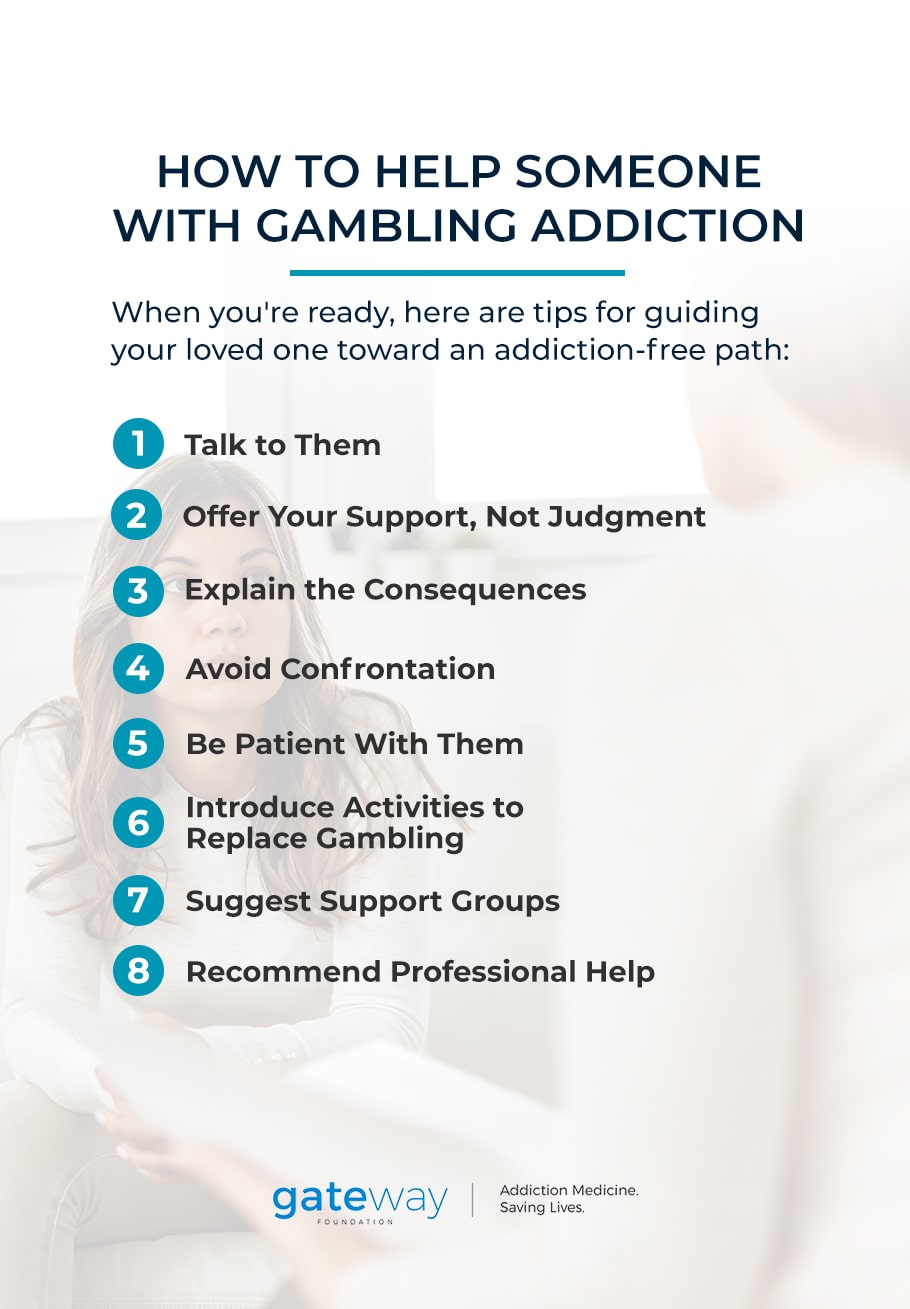

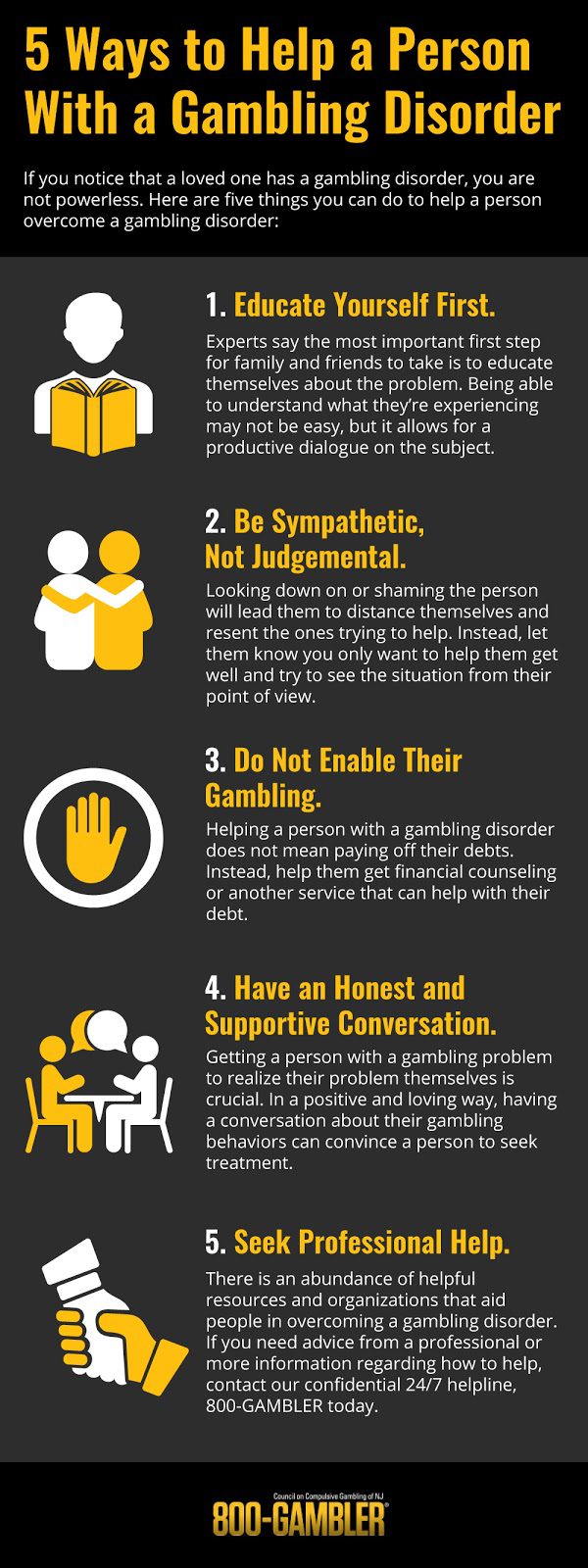
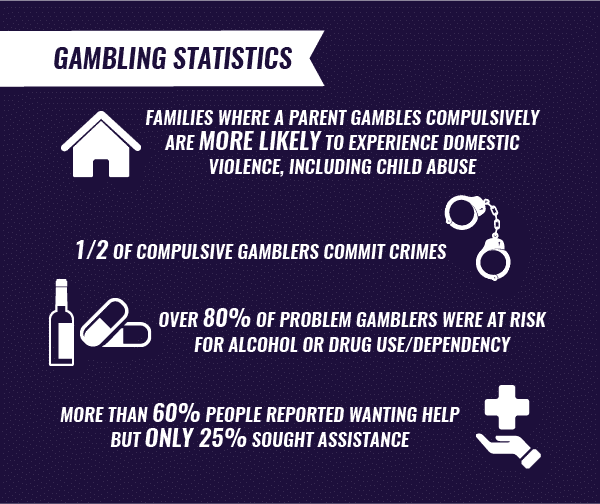



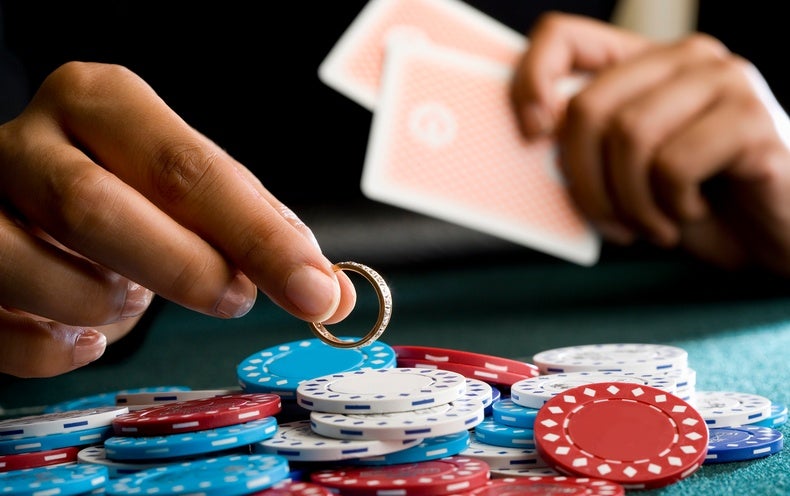
/images/2019/06/08/man-getting-gambling-debt-relief.jpg)


